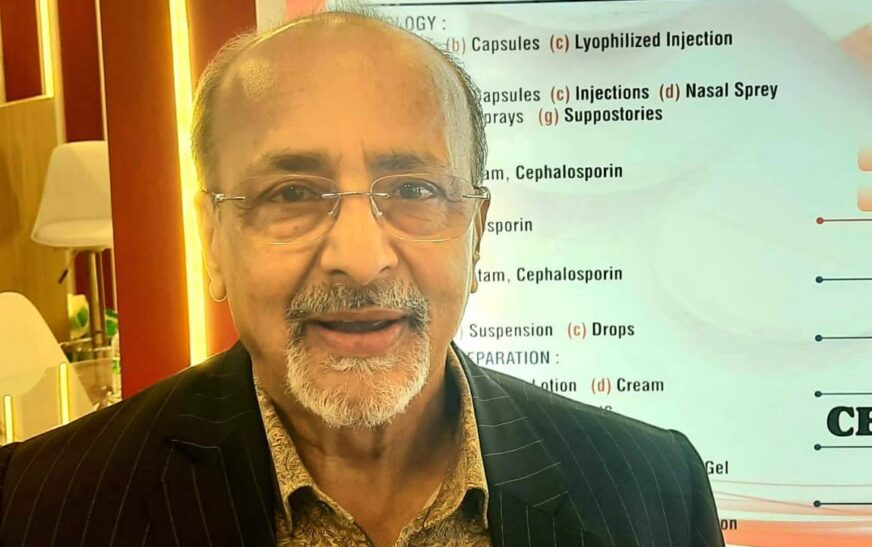The Confederation of Indian Pharmaceutical Industry (CIPI) is the apex organization representing India’s small and medium-scale pharmaceutical manufacturers. Uniting major state-level pharmaceutical associations, CIPI encompasses over 7,000 enterprises. These companies collectively generate a domestic turnover of ₹20,000 crores and export products worth ₹15,000 crores annually. This vibrant sector employs more than five lakh qualified, skilled, and semi-skilled individuals, playing a pivotal role in strengthening the national economy.
CIPI vigorously champions its members’ interests in the highly competitive and research-intensive pharmaceutical sector, where innovation and operational excellence are paramount. Amid challenges posed by arbitrary regulations and evolving government policies, CIPI advocates for equitable legislation. Its unified voice ensures that SMEs receive the attention, support, and opportunities needed to thrive in a demanding market.
Acknowledged by both state and central governments, CIPI actively engages in policy formulation and collaborates with key ministries, including Health, Commerce, and Chemicals and Fertilizers. Through consistent dialogue and representation, it works to shape balanced regulations that empower its members while contributing to national economic and social progress.
CIPI remains steadfast in its mission to advance industry interests, safeguard its members, and fortify India’s pharmaceutical backbone. By fostering innovation and driving growth, it continues to lay the groundwork for a sustainable and prosperous future.
In an exclusive interaction with The Interview World, R.K. Jain, Chairman of CIPI and Chairman & Managing Director of East African (India) Overseas, sheds light on the confederation’s core initiatives to bolster India’s pharmaceutical sector. He discusses how global events like CPHI amplify the industry’s visibility and elaborates on the diverse product offerings of East African (India) Overseas. Below are the highlights from his insightful conversation.
Q: What are the key initiatives CIPI undertakes to support and advance the growth of the Indian pharmaceutical industry?
A: CIPI has emerged as a powerful platform serving the needs of pharmaceutical companies within the MSME sector. It offers an invaluable space for these companies to showcase their products effectively. Before CIPI’s formation, MSME pharma companies struggled to find viable channels to reach potential customers. This gap underscored the significance of CIPI’s initiative. The Convention on Pharmaceutical Ingredients (CPHI) deserves commendation for organizing this event, which empowers MSME pharmaceutical companies by providing them with the exposure and opportunities they need to thrive.
Q: Could you provide an overview of the number of companies participating in this year’s CPHI?
A: I have not reviewed the data yet. However, I believe that several hundred pharmaceutical companies across the entire supply chain are participating in this event. This includes companies involved in machinery and equipment, finished dosage forms, packaging and drug delivery, contract services, APIs, excipients, integrated pharmaceutical solutions, natural extracts, fine chemicals, and bioproduction.
Q: What has been the industry’s response to this event, and how is it contributing to its growth and collaboration opportunities?
A: I believe this platform is highly beneficial, especially given the persistent demand and supply challenges in the market. It functions like a matrimonial alliance—where a platform brings together potential partners, facilitating their meeting and interaction. Similarly, this business platform connects buyers and sellers, allowing them to discuss products, address needs, negotiate terms, and ultimately close deals. This process not only supports industry growth but also serves the national interest. It attracts numerous importers, which helps boost exports as well. In essence, it is an invaluable platform for enhancing pharmaceutical exports from our country.
Q: Can you share insights on the anticipated scale of business transactions or deals expected to take place during this event?
A: I cannot comment on this at the moment, as it would be inappropriate to assess the business during an ongoing event. Furthermore, many business deals often materialize after the event concludes. That said, these figures are undoubtedly worth millions, if not billions, by any reasonable estimation.
Q: What specialized products is your company, East African (India) Overseas, showcasing at this event, and what sets them apart in the market?
A: We were once an MSME, but that is no longer the case. According to the rules and framework established by the Government of India, we now qualify as a large company. We founded this company in 1984, marking over 42 years of growth. From starting as a small industry in the early 80s, we have evolved significantly to operate nine of our own plants. What sets our company apart is our integrated approach; we have all dosage forms under one roof. This means that for both white-label and domestic needs, anyone can outsource their preferred drug with confidence.
Q: Does your company have international operations, and are you actively engaged in exporting your products?
A: We actively export our products and are registered in 30 countries worldwide. Our products have secured the necessary registrations, enabling us to maintain a strong presence in international markets.
Q: Do you have any specialized product that you are positioning as your flagship offering or main focus for this event?
A: No, the range varies based on customer needs. We offer injectables and have specialized products for the neuro segment. Additionally, we provide treatments for diabetes. Our portfolio includes antibiotics, anti-inflammatory drugs, and many other medications that we export.
Q: Are there any new products that your company plans to launch in the Indian market?
A: Many products are in the pipeline because the pharmaceutical industry constantly evolves. Driven by market demands and patient needs, new drugs continue to emerge. Our process begins when a drug is launched in the global market. We then take up the drug, conduct our trials following the guidelines set by the Government of India and the CDSCO, and develop the drug in our laboratory. After completing clinical trials and obtaining the CDSCO’s approval, we market the product.









